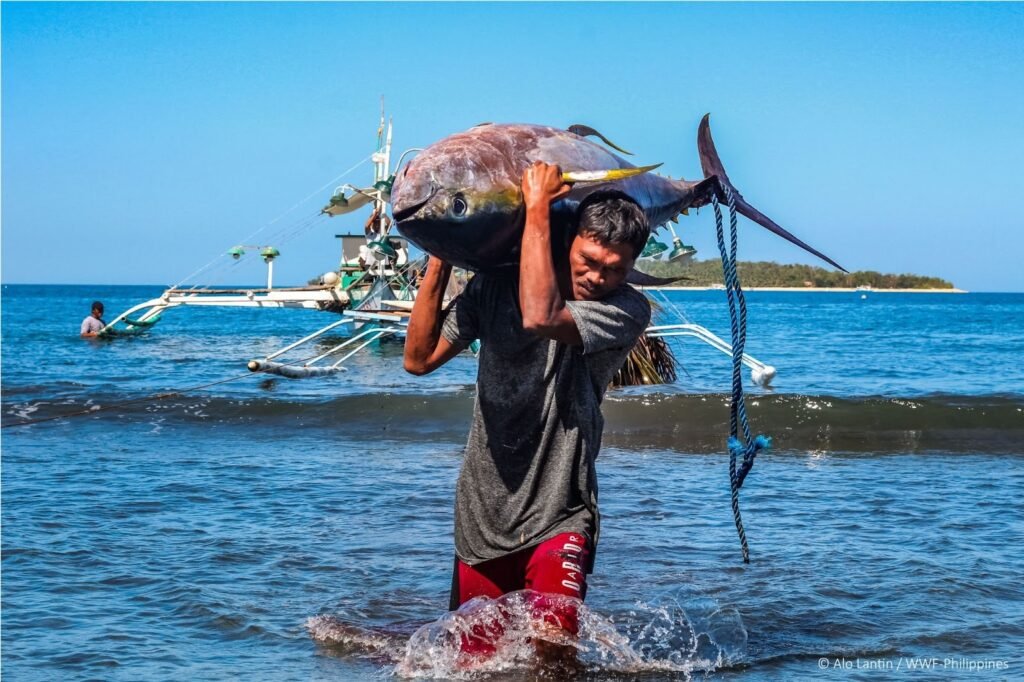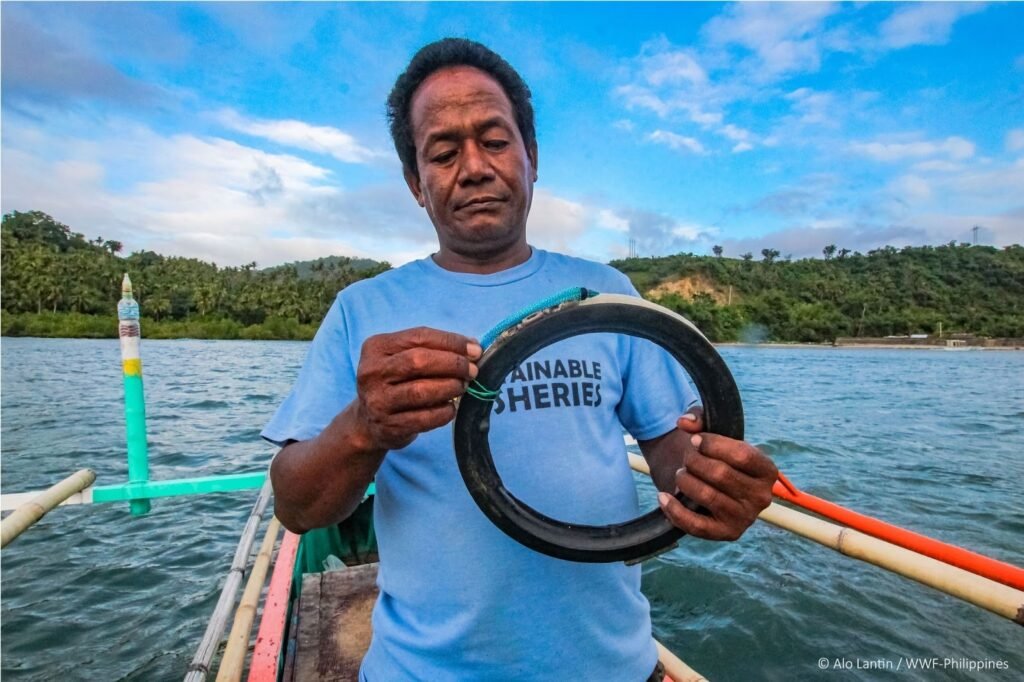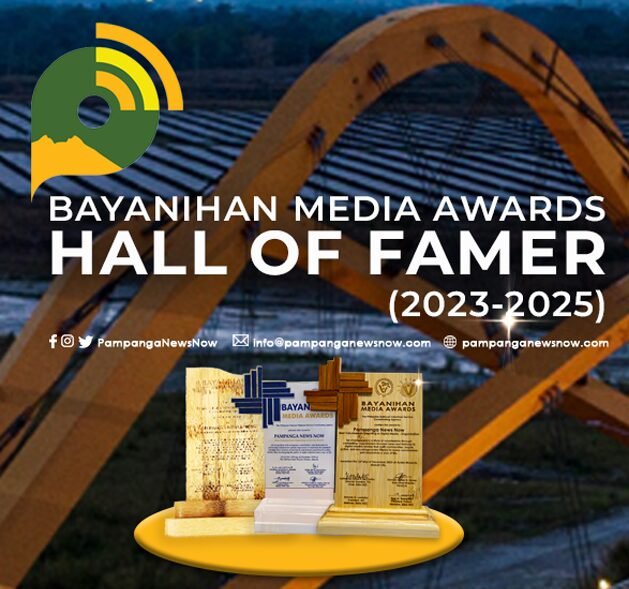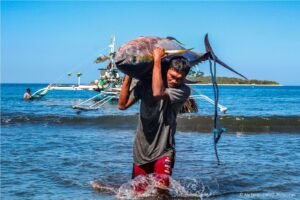
Small-scale fishers bring home a big win on the road towards sustainable fisheries.
A group of small-scale tuna fishers and tuna processor-exporters were certified under the Marine Stewardship Council (MSC) on October 19th, in a historical first for the Philippines.
The Philippine Tuna Handline Partnership (PTHP), a group of small-scale fishers and exporters, operates in the tuna fisheries of Mindoro Strait and Lagonoy Gulf. The PTHP was formally organized in 2019, and began the full MSC assessment process in March of 2020.

MSC certification is the latest development in a decades-long Fisheries Improvement Project (FIP) being run with handline tuna fishers in Mindoro Strait and Lagonoy Gulf. The goal of the FIP is to improve the environmental sustainability of fisheries.
Three principles need to be met for a fishery to be considered sustainable according to the MSC standard. First, fishing activities should be conducted in a way that allows fish populations to remain productive and healthy; second, harm to habitats and endangered species should be limited to ensure the health of the ecosystem; and third, the fishery must be managed well, with laws and plans that enable the sustainability of the fishery.
The MSC is a useful global standard for measuring the environmental performance of wild-caught fisheries like those of Mindoro Strait and Lagonoy Gulf. The PTHP is the first group in the Philippines to receive MSC certification.
“This process has created unity among everyone – among exporters, fishers, local governments, everyone. We’ve realized that it’s not about us, but about what we do here in the fisheries, our livelihood, what we do with others and what we can achieve together,” shared Philippine Association of Tuna Processors, Inc. (PATPI) Chairman Sam C. Garcia.
PATPI represents the countries’ tuna processors. The PTHP consists of both small scale tuna fishers and tuna processors.

While the PTHP has been certified by the MSC, the group still has a number of conditions to close for them to keep their certification. Conditions are requirements outlined by the MSC, and serve as a good guide in helping fisheries work towards sustainability.
For the PTHP, closing these conditions and meeting the MSC standard is a step in the right direction for the future of their fisheries.
In particular, the tuna fisheries under the PTHP need stronger habitat management strategies, policies to identify and protect endangered species, and effective monitoring and enforcement of fishery laws. Also, while tuna management plans have been drafted, local government units need to recognize them and adopt them on a municipal level for them to be effective.
Measures also need to be adopted to protect tuna fisheries throughout the region. The Philippines belongs to the Western Central Pacific region, which the MSC has flagged for not having sufficient measures in place to protect local fisheries.

The MSC has warned that, should region-wide harvest control rules and strategies not be put in place by December 2022, tuna fisheries in the Western Central Pacific could lose their MSC certification.
“For around a decade of fisheries work we fishers have grown together in order to face whatever obstacle that has come our way. With the help of government agencies and the partners who have stood alongside us, practices that once harmed the environment and our local communities have left our fisheries little by little over the many years,” said IFARMC of Mindoro Strait Chairman Bernard A. Mayo, Sr., a fisher leader who has been with the program since its inception in 2011. “This decade-long journey we have been on together with our partner fishers has shown to us what is possible in fisheries work. We still have a long way to go before we achieve environmental sustainability for our tuna fisheries, but MSC certification stands as a testament to how far we’ve come,” shared WWF-Philippines Program Manager Joann P. Binondo.



